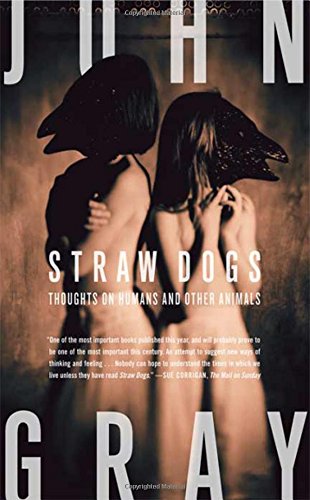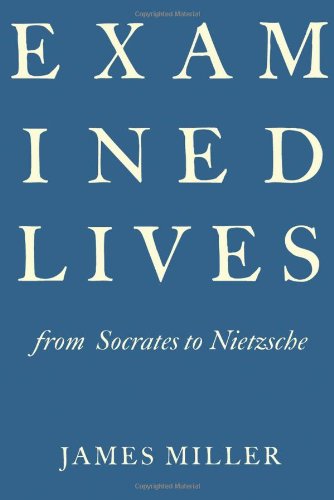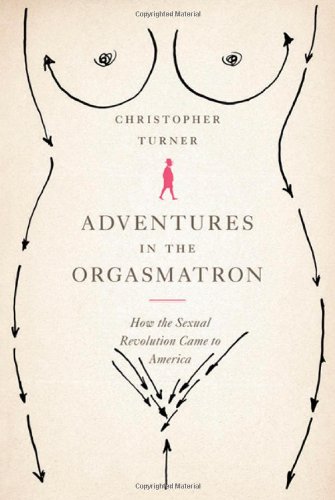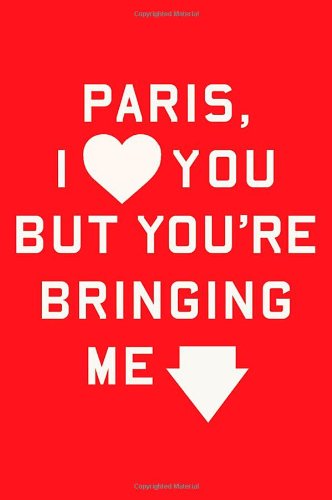Get Free Ebook Straw Dogs: Thoughts on Humans and Other Animals, by John Gray
Straw Dogs: Thoughts On Humans And Other Animals, By John Gray. In what situation do you like reading so much? Just what about the kind of guide Straw Dogs: Thoughts On Humans And Other Animals, By John Gray The needs to review? Well, everyone has their own reason why should check out some e-books Straw Dogs: Thoughts On Humans And Other Animals, By John Gray Primarily, it will certainly associate with their requirement to obtain understanding from guide Straw Dogs: Thoughts On Humans And Other Animals, By John Gray and wish to review just to get amusement. Books, story book, as well as various other entertaining publications come to be so popular this day. Besides, the clinical publications will likewise be the finest reason to select, especially for the students, teachers, physicians, business owner, and also various other occupations that are fond of reading.

Straw Dogs: Thoughts on Humans and Other Animals, by John Gray

Get Free Ebook Straw Dogs: Thoughts on Humans and Other Animals, by John Gray
Just how if there is a website that enables you to look for referred publication Straw Dogs: Thoughts On Humans And Other Animals, By John Gray from throughout the globe author? Automatically, the website will be extraordinary finished. Numerous book collections can be located. All will be so easy without difficult point to move from site to site to get guide Straw Dogs: Thoughts On Humans And Other Animals, By John Gray really wanted. This is the website that will certainly give you those assumptions. By following this website you could get lots varieties of publication Straw Dogs: Thoughts On Humans And Other Animals, By John Gray compilations from versions kinds of writer as well as author preferred in this globe. Guide such as Straw Dogs: Thoughts On Humans And Other Animals, By John Gray and others can be obtained by clicking great on link download.
Why need to be Straw Dogs: Thoughts On Humans And Other Animals, By John Gray in this site? Obtain more revenues as exactly what we have actually told you. You can locate the other relieves besides the previous one. Relieve of getting the book Straw Dogs: Thoughts On Humans And Other Animals, By John Gray as what you desire is additionally supplied. Why? We offer you several kinds of guides that will not make you feel weary. You can download them in the web link that we supply. By downloading Straw Dogs: Thoughts On Humans And Other Animals, By John Gray, you have actually taken properly to choose the simplicity one, compared to the problem one.
The Straw Dogs: Thoughts On Humans And Other Animals, By John Gray oftens be fantastic reading book that is easy to understand. This is why this book Straw Dogs: Thoughts On Humans And Other Animals, By John Gray ends up being a favorite book to check out. Why do not you desire become one of them? You can delight in reading Straw Dogs: Thoughts On Humans And Other Animals, By John Gray while doing other tasks. The visibility of the soft data of this book Straw Dogs: Thoughts On Humans And Other Animals, By John Gray is sort of obtaining experience easily. It consists of just how you should save the book Straw Dogs: Thoughts On Humans And Other Animals, By John Gray, not in shelves of course. You may save it in your computer tool as well as gizmo.
By saving Straw Dogs: Thoughts On Humans And Other Animals, By John Gray in the device, the method you review will certainly also be much less complex. Open it and begin reading Straw Dogs: Thoughts On Humans And Other Animals, By John Gray, easy. This is reason we suggest this Straw Dogs: Thoughts On Humans And Other Animals, By John Gray in soft data. It will not disturb your time to obtain the book. On top of that, the online heating and cooling unit will also reduce you to search Straw Dogs: Thoughts On Humans And Other Animals, By John Gray it, even without going someplace. If you have connection net in your workplace, residence, or device, you could download Straw Dogs: Thoughts On Humans And Other Animals, By John Gray it directly. You might not additionally wait to get guide Straw Dogs: Thoughts On Humans And Other Animals, By John Gray to send by the seller in various other days.

The British bestseller Straw Dogs is an exciting, radical work of philosophy, which sets out to challenge our most cherished assumptions about what it means to be human. From Plato to Christianity, from the Enlightenment to Nietzsche and Marx, the Western tradition has been based on arrogant and erroneous beliefs about human beings and their place in the world. Philosophies such as liberalism and Marxism think of humankind as a species whose destiny is to transcend natural limits and conquer the Earth. John Gray argues that this belief in human difference is a dangerous illusion and explores how the world and human life look once humanism has been finally abandoned. The result is an exhilarating, sometimes disturbing book that leads the reader to question our deepest-held beliefs. Will Self, in the New Statesman, called Straw Dogs his book of the year: "I read it once, I read it twice and took notes . . . I thought it that good." "Nothing will get you thinking as much as this brilliant book" (Sunday Telegraph).
- Sales Rank: #46459 in Books
- Brand: Gray, John
- Published on: 2007-10-16
- Released on: 2007-10-16
- Original language: English
- Number of items: 1
- Dimensions: 8.50" h x .60" w x 5.50" l, .55 pounds
- Binding: Paperback
- 272 pages
From Publishers Weekly
Humans think they are free, conscious beings, when in truth they are deluded animals, writes London University economics professor Gray (Black Mass) in a series of brief and intriguing mini-essays. His themes include the similarities between hypnotism and financial markets and uncomfortable truths behind drug use and its prohibition. In a chapter called Deception, Gray traces Humanism from Plato through Postmodernism. He critiques both science and religion: Science can advance human knowledge, it cannot make humanity cherish truth. Like the Christians of former times, scientists are caught up in the web of power; they struggle for survival and success; their view of the world is a patchwork of conventional beliefs. At a certain point, it can be difficult to see where Gray's allegiances lie. He tears down institutions, especially consciousness, self, free will and morality, and questions our ability to solve the problems of overpopulation and overconsumption: Only a breed of ex-humans can thrive in the world that unchecked human expansion has created. So what's left? Gray recommends a devaluation of progress, mastery, and immortality, and a return to contemplation and acceptance: Other animals do not need a purpose in life. Can we not think of the aim of life as being simply to see? This comforting question punctuates an otherwise profoundly disturbing meditation on humankind's real place in the world. (Oct.)
Copyright © Reed Business Information, a division of Reed Elsevier Inc. All rights reserved.
From Booklist
In a work of thoroughgoing iconoclasm, British philosopher Gray attacks the belief that humans are different from and superior to animals. Invoking pure Darwinism, he savages every perspective from which humans appear as anything more than a genetic accident that has produced a highly destructive species (homo rapiens)--a species that exterminates other species at a phenomenal rate as our swelling numbers despoil the global environment. Gray explains the human refusal to confront the darker realities of our nature largely as the result of how we have consoled ourselves with the myths of Christianity and its secular offspring, humanism and utopianism. Human vanity, he complains, has even converted science (which should teach us of our insignificant place in nature) into an ideology of progress. But neither hope for progress nor confidence in human morality passes muster with Gray, who envisions a future in which the human population finally contracts as a world politics that grows ever more predatory and brutal shatters all such illusions. As a work of ruthless rigor, this provocative book will force readers to reexamine their own convictions. Bryce Christensen
Copyright © American Library Association. All rights reserved
Review
“Nothing will get you thinking as much as this brilliant book.” ―George Walden, The Sunday Telegraph
“There is unlikely to be a more provocative or more compelling book published this year than Straw Dogs . . . Gray is one of the most consistently interesting and unpredictable thinkers in Britain.” ―Jason Cowley, The Observer (London)
“One of the most important books published this year, and will probably prove to be one of the most important this century. An attempt to suggest new ways of thinking and feeling . . . nobody can hope to understand the times in which we live unless they have read Straw Dogs.” ―Sue Corrigan, Mail on Sunday
“At once daunting and enthralling, Gray's remarkable new book shows us what it would be like to live without the distraction of consolations.” ―Adam Phillips
“This powerful and brilliant book is an essential guide to the new Millennium. Straw Dogs challenges all our assumptions about what it is to be human, and convincingly shows that most of them are delusions.” ―J.G. Ballard
Most helpful customer reviews
157 of 175 people found the following review helpful.
The folly of the human animal
By Autonomeus
John Gray was once upon a time an optimistic liberal. He fell under the spell of the Gospel of the Free Market in the Thatcherite 1980s, and thus made a transition to conservatism. When he discovered that Thatcherism/Reaganism wasn't really conservative at all, but rather a dogmatic radicalism, he became an old-school conservative. He proceeded to reject the Enlightenment tout court, and embraced post-modernist relativism. Now, he has taken a further step into simple misanthropy. Gray has written a jeremiad against Christianity, the Enlightenment, science, and any hope of bettering people or the planet we live on. This is a performative contradiction, of course, because if there is no cause for hope, why write a book? What's the point? Fame and money are the only reasons left, one must suppose, and that supposition is perfectly consistent with Gray's line of argument -- all lofty ideals and dreams are illusions.
Despite all that, I enjoyed the book and recommend it. It's a quick, easy read, quite entertaining, and I'm sure you can find it in the library. There are many useful citations in the back to more substantial books you might want to read to pursue Gray's points, many made in the form of sound-bite one-liners. Depending on what you bring to it, you may or may not find it shocking -- STRAW DOGS is mainly based on the growing knowledge from the field variously known as sociobiology or evolutionary psychology or biological anthropology. Humans are animals, not demigods. Gray's second main point I think is less appreciated and more important, and that is the evidence that the human species is embarked on a neomalthusian experiment -- overshoot the ecosystem and see what happens.
That's good cause for a jeremiad, and if Gray's disjointed ramblings focus more people's attention on this ("death focuses the mind") then it is worth something. Gray is having none of any sort of schemes for improvement, though, let alone salvation. His presentation is totally negative (we are nothing but "exceptionally rapacious primates"), which of course is a good strategy for provoking discussion, hostility and sales. I detect, though, a positive agenda, which Gray only intimates between the lines, and that is the most conservative belief system of all, animism. If humans dropped their pretense at superiority and stopped all their doomed scheming, accepting their equal status with their fellow animals, and acted with humility and reverence toward their fellow beings, then all might be well. This seems to be Gray's covert plan for salvation, and it is in fact one I can wholeheartedly endorse.
Gray goes too far in throwing out the Enlightenment. Rationality does clearly seem to be lacking in most human behavior, but what of it does exist is important to foster, encourage and spread. (See Daniel Dennett's FREEDOM EVOLVES, which makes the same assumptions as Gray, but reaches a very different conclusion.) Sure it seems like an uphill struggle that we're likely to lose, but I could see that years ago (33 years ago to be precise), and I don't know what I would have done if I hadn't found reasons to try. Being an intellectual bomb-thrower is fine for someone still young and full of indignation, but there is a planet of sentient beings who expect more of someone like John Gray -- carpe diem!
(verified library loan)
69 of 79 people found the following review helpful.
We cannot make the world to be for us.
By Bruno
It is over a hundred years since Darwin revealed to us our animal lineage, and yet the human primate is still having difficulty coming to terms with its animal origins. All bar creationists may indeed now accept that we are descended from apes, but most of us still cling to the belief that we have somehow become different to the rest of the animal kingdom. Our ability to use language and reason, to see ourselves as selves, selves that move forward in time and, with other selves, progress by building a culture based on moral rules and a technology that seems to give us ever increasing control over our environment. Surely this is enough to set us apart from the rest of nature? No. Thankfully, a British philosopher who lives and breathes today but who speaks with the depth and clarity of a modern day Schopenhauer is here to rid you of this delusion.
Human beings are still animals claims Gray, but the more profound insight that he delivers, and that his critics seem unable to grasp or admit, is that humans, and even whatever intelligence that might emerge in a 'posthuman' future, will always be inescapably rooted in the natural world as much as the lowliest of slime molds.
We believe that language and reason are what differentiates us, forgetting that we acquired these abilities through the blind mechanisms of evolution. This means that they are, as Hume, Schopenhauer and Nietzsche declared long before Darwin, mere tools in the brutish struggle for survival. These same tools enabled the human animal to create the illusions of free will, self and morality and the delusion to think that with these, man has the ability to stand apart from the animal world and choose his own fate. But the fundamental import of Darwinism is that it tells us that 'we' were 'made' for the world. The world was not made for us, nor can we ever make it, nor indeed any world, to be for us.
Some rather simple-minded criticisms of Gray's outlook are floating around the Internet, including on this page, so lest they deter you from reading this book, here are a few brief rejoinders that can be made to them.
1/ 'Gray teaches us nothing new. Postmodernism has been around for 40 years now.' Gray clearly isn't giving just another rehash of postmodernist thought. In fact his book is a savage attack on some of the postmodernist thought that has now been neatly incorporated into liberal thinking. The belief that the world is entirely a social construction, that this construction is determined by power relationships and that therefore by changing those power relationships society can mould the world into whatever form it chooses. The way that humans see the world may indeed be due to power relationships within society, but these arise because of the fact that humans are biological animals in an inherently competitive natural world. Postmodernism is, as Gray says, 'just the latest fad in anthropocentrism'.
2/ 'Gray criticises science as a faith but seems to hold Darwinism as a faith.' Gray is primarily attacking the faith that scientific progress leads to moral and social progress. If anything is right in science it is the broad theory of Darwinism. Yet people believe that science can enable man to take control of his destiny, when one of the most fundamental tenets of modern science teaches us that science and its consequences (as with any other sphere of human activity) is ultimately determined by the same laws that govern other animals' behaviour.
3/ 'No-one seriously believes in progress anymore'. Well the western world is without doubt led by two men who wholeheartedly believe in the vision of moral progress, as we are seeing with disastrous consequences in Iraq. As both have been re-elected as their heads of government, presumably a lot of the people who voted for them share that vision. The idea that western society is not still dominated by the belief in moral progress is absurd. A generation ago homosexuality was illegal and homosexuals were routinely sent to prison. Today, someone can be sent to prison for simply arguing that homosexuality is wrong. For this to be the case, society clearly has a conviction that the moral attitudes of today are without question a progression on the attitudes of yesterday. To give a different example, on the 10th of September 2001 not one person in a hundred could have believed that America would soon be holding a serious debate on whether or not to legalise torture.
It goes without saying that I found Straw Dogs to be an utterly rewarding intellectual experience. Read it and it may change the whole way you look at the world...though probably together with a feeling that, like all great writers, Gray has articulated for you something profound that you always suspected about the world.
39 of 47 people found the following review helpful.
An anguished plea
By Stephen A. Haines
John Gray concludes his book with a tragic entreaty: "Can we not think of the aim of life as simply to see?" His plea for awareness reveals the cloak of obscuratism our mythology has draped over all nature. Reading Straw Dogs is like being abruptly roused from a pleasant dream. "Wake and shake!", he cries. Wake up to the falsity of the dogmas under which you live. Shake them off and recognize that we live within reality's domain, not that of phantasms and fables. These ideas disturb the comfortable, yet offer little comfort to those seeking an easy answer to life's challenges. Gray understands our need for solace, but he knows reality isn't a tourist resort. Nature is a harsh realm and he wishes us to confront enduring questions honestly. Writing this book means he thinks we can do that.
Gray's thesis relies on aknowledging our place in the realm of nature. We are, he reminds us, merely a part of the animal kingdom. We are neither a special creation nor particularly unique. Writing alone, with the continuity it provides, sets us apart while granting significant powers. The "continuity" led to the notion of human "progress" and "perfectability". In an evolutionary sense both ideas are false, and we are evolution's product. Even humanism, supposedly rational and secular, has fallen into the trap of seeking "perfectability". Gray finds this misleading and self-serving. He examines the work of Western philosophers, the guides to our thinking, finding them mistaken or misleading. In today's milieu, Lovelock's Gaia concept of the whole planet acting like a single organism, should be reconsidered. Whether the details of this idea are valid is irrelevant. It is the notion that we are apart from the remainder of nature that we must cast away. The monotheist dogma granting us "dominion over the earth" is the most pernicious idea developed by humanity, Gray asserts.
Gray's text is fragmented without sacrificing continuity. His techique allows pauses for reflection. He posits ideas, questions, suggestions, assertions freely. Stop and think about them as you read. He tumbles many icons - he indicts Christianty on the second page, suggesting what will follow. He is resolute and articulate about how important these questions are to us. A superficial look at this work may lead the reader to feel hopeless. If there was no hope, however, Gray wouldn't have bothered to write this book. Like any thinker, he's concerned about the future. The prospects appear bleak, but not insurmountable. He assumes the reader is intelligent enough to consider and act on realistic solutions. "Perfectibility" of humanity within nature may be impossible, but with an informed outlook "accomodation" can be achieved. The first step, however, is the shedding of false dogmas.
Being informed isn't an easy task, Gray concedes. He presents the thoughts of previous philosophers, but without direct attribution. If you need references, his extensive bibliography is a fine starting point. It's also a few years' study syllabus. Taking his quotes at face value isn't the issue, however. What must be confronted are the values that you, the reader, hold and cherish. Can you "live to see", or will you remain wrapped blindly within dogma? Read Gray and make up your own mind. [stephen a. haines - Ottawa, Canada]
See all 75 customer reviews...
Straw Dogs: Thoughts on Humans and Other Animals, by John Gray PDF
Straw Dogs: Thoughts on Humans and Other Animals, by John Gray EPub
Straw Dogs: Thoughts on Humans and Other Animals, by John Gray Doc
Straw Dogs: Thoughts on Humans and Other Animals, by John Gray iBooks
Straw Dogs: Thoughts on Humans and Other Animals, by John Gray rtf
Straw Dogs: Thoughts on Humans and Other Animals, by John Gray Mobipocket
Straw Dogs: Thoughts on Humans and Other Animals, by John Gray Kindle
>> Get Free Ebook Straw Dogs: Thoughts on Humans and Other Animals, by John Gray Doc
>> Get Free Ebook Straw Dogs: Thoughts on Humans and Other Animals, by John Gray Doc
>> Get Free Ebook Straw Dogs: Thoughts on Humans and Other Animals, by John Gray Doc
>> Get Free Ebook Straw Dogs: Thoughts on Humans and Other Animals, by John Gray Doc










